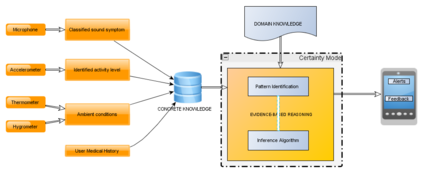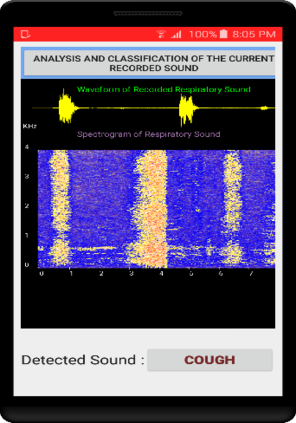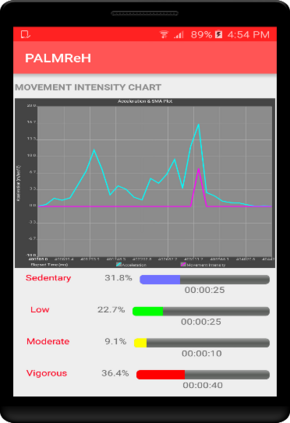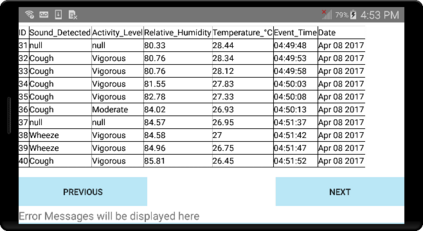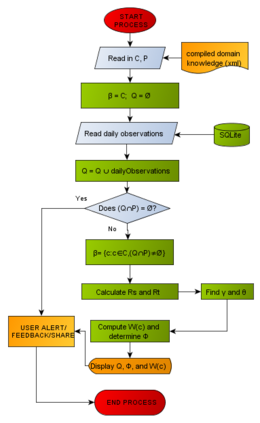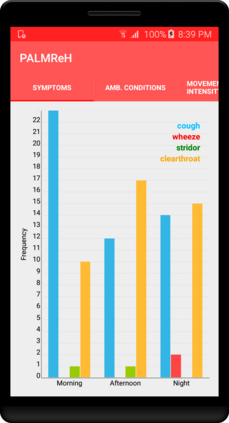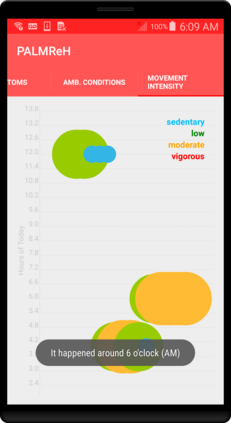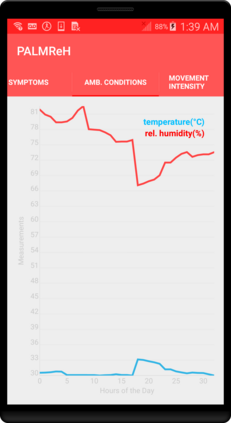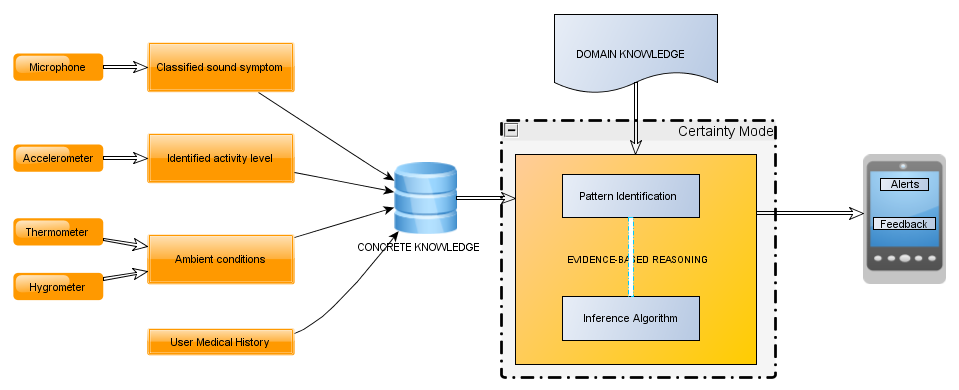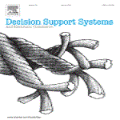Mobile health systems in recent times, have notably improved the healthcare sector by empowering patients to actively participate in their health, and by facilitating access to healthcare professionals. Effective operation of these mobile systems nonetheless, requires high level of intelligence and expertise implemented in the form of decision support systems (DSS). However, common challenges in the implementation include generalization and reliability, due to the dynamics and incompleteness of information presented to the inference models. In this paper, we advance the use of ad hoc mobile decision support system to monitor and detect triggers and early symptoms of respiratory distress provoked by strenuous physical exertion. The focus is on the application of certainty theory to model inexact reasoning by the mobile monitoring system. The aim is to develop a mobile tool to assist patients in managing their conditions, and to provide objective clinical data to aid physicians in the screening, diagnosis, and treatment of the respiratory ailments. We present the proposed model architecture and then describe an application scenario in a clinical setting. We also show implementation of an aspect of the system that enables patients in the self-management of their conditions.
翻译:近些年来,移动保健系统明显改善了保健部门,使病人能够积极参与其健康,并便利他们接触保健专业人员。然而,这些移动系统的有效运作需要以决策支助系统的形式实施高水平的情报和专门知识。然而,由于向推理模型提供的信息的动态和不完整,实施过程中的共同挑战包括一般化和可靠性。我们在本文件中推动使用临时移动决定支持系统,以监测和检测因体力劳累引起的呼吸困难的触发因素和早期症状。重点是运用确定性理论,以移动监测系统为不精确的推理模型,目的是开发一个移动工具,协助病人管理病情,并提供客观的临床数据,协助医生检查、诊断和治疗呼吸道疾病。我们介绍拟议的模型结构,然后描述临床环境的应用情景。我们还展示了使病人能够自我管理病情的系统的一个方面的执行情况。

